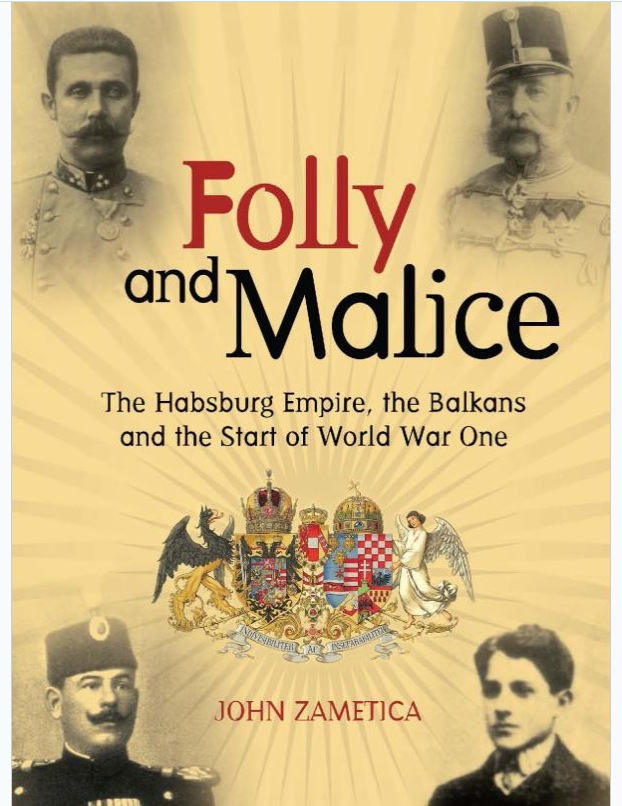Folly and Malice
Book review

The Habsburg Empire, the Balkans and the Start of World War One
Folly and Malice: The Habsburg Empire, the Balkans and the Start of World War One, John Zametica, Shepheard-Walwyn, 2017, 766p, £27-95. ISBN 0856835137.
This painstaking and meticulous piece of scholarship offers a challenge to some widely-held assumptions about the events which led up to the outbreak of World War One.
John Zametica has examined sources now available in the wider reaches of the former Austro-Hungarian Empire and Serbia. Throughout his exposition there is a continuing implication that some other modern historians have accepted details central to the traditional narrative and interpretation without fully checking the sources. What is interesting to me is that the late A. J. P. Taylor, a hugely influential figure in the Historical Association, by contrast, is endlessly complimented by Zametica for his research and interpretation. This is quite remarkable because Taylor’s research will have taken place over eighty years ago and yet we have modern-day confirmation of the enduring quality of his scholarship.
Those of us who have taught the detail of the events of 1914 from the assassination of the Archduke to the declaration of war will not be reassured by this text. Zametica rejects the notion that Gavrilo Princip was a member of the ‘Black Hand’ but reveals that clearly that, once the leadership of the ‘Black Hand’ back in Belgrade discovered what he intended to do, they did all they could to divert him from the intended asassination.
A further example is Zametica’s detailed examination of the sequence of events on the day of the assassination where he makes further revelations about what happened en route to Sarajevo and over what happened in the town hall, leading to the confusion which followed. The third particular point that struck me is Zametica’s emphasis that the Austrians intended to attack Serbia anyway and that the Serbs could not have avoided this outcome, even without the contribution of Princip.
This book has been a revelation to me and, whilst it might be considered controversial in some quarters, its challenge to existing thinking makes it a very significant contribution to the continuing debate about the causes of the Great War.

